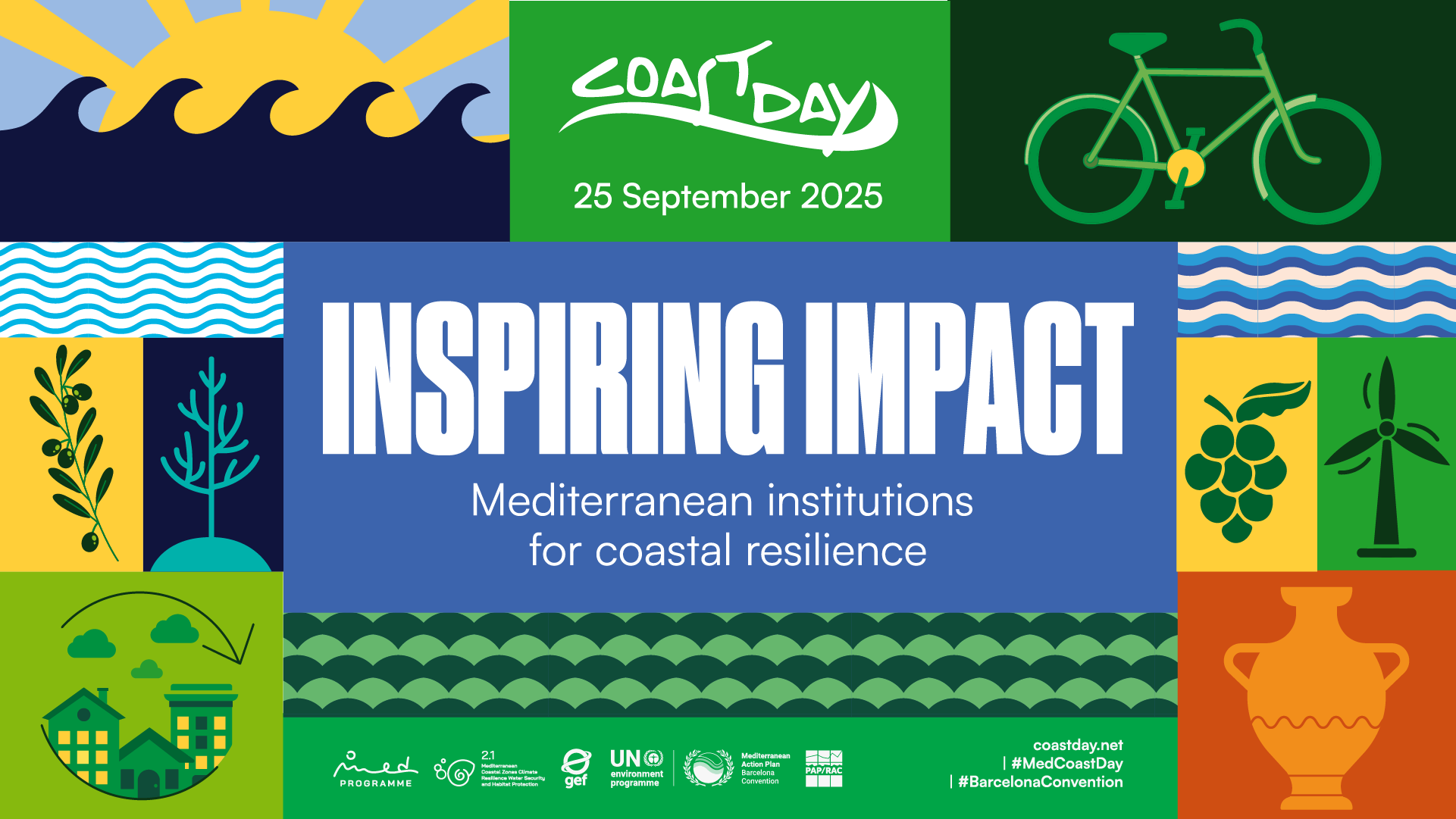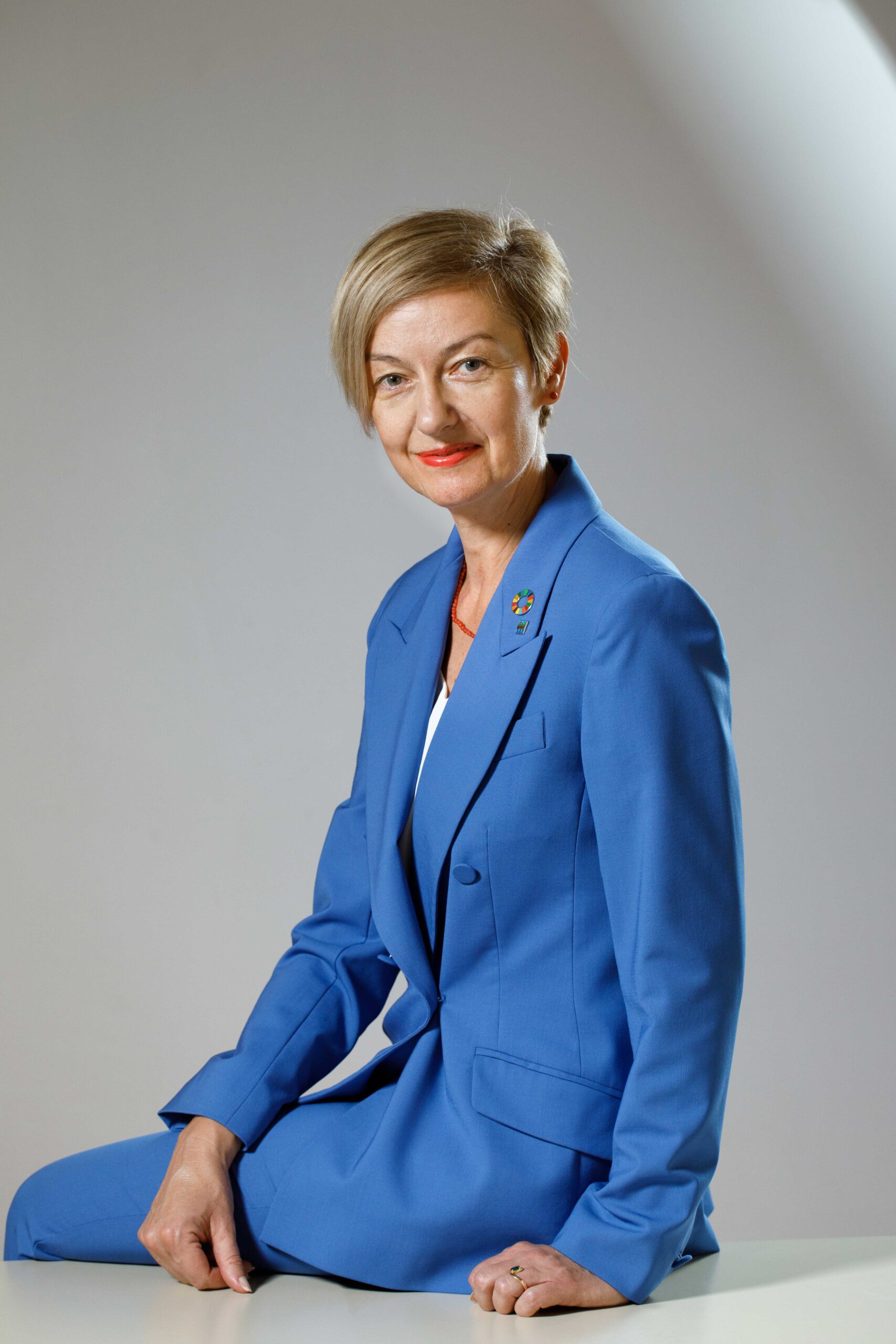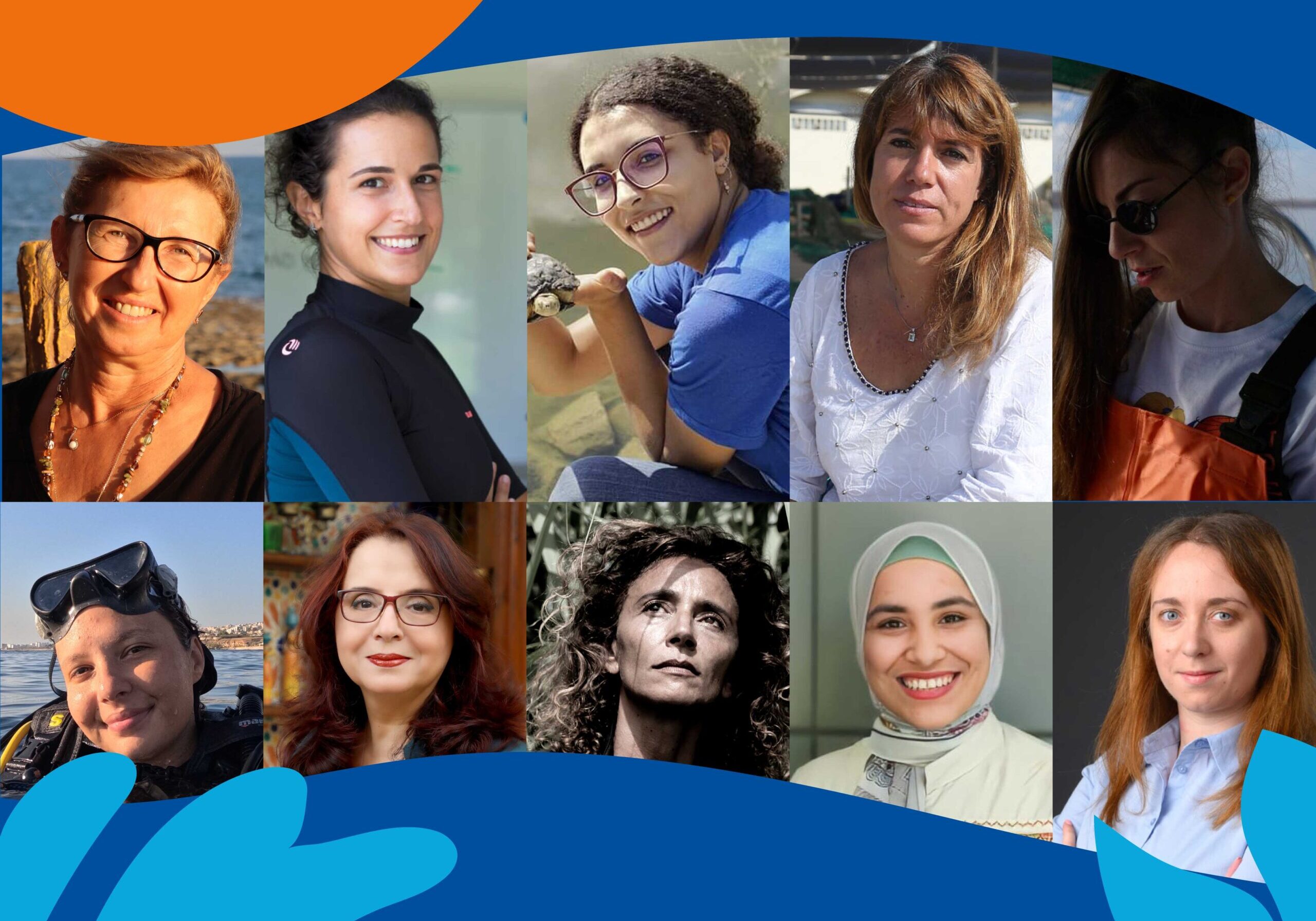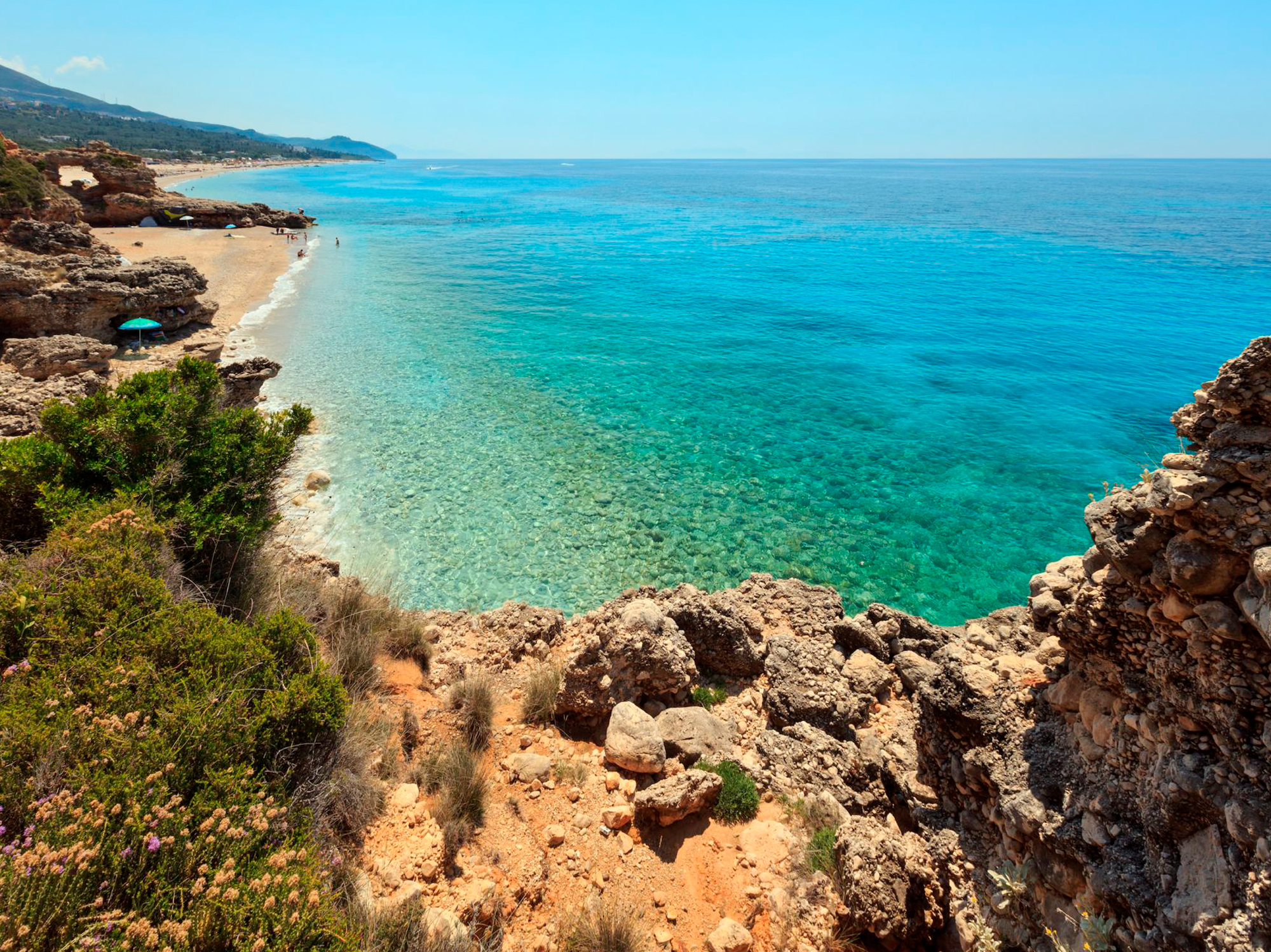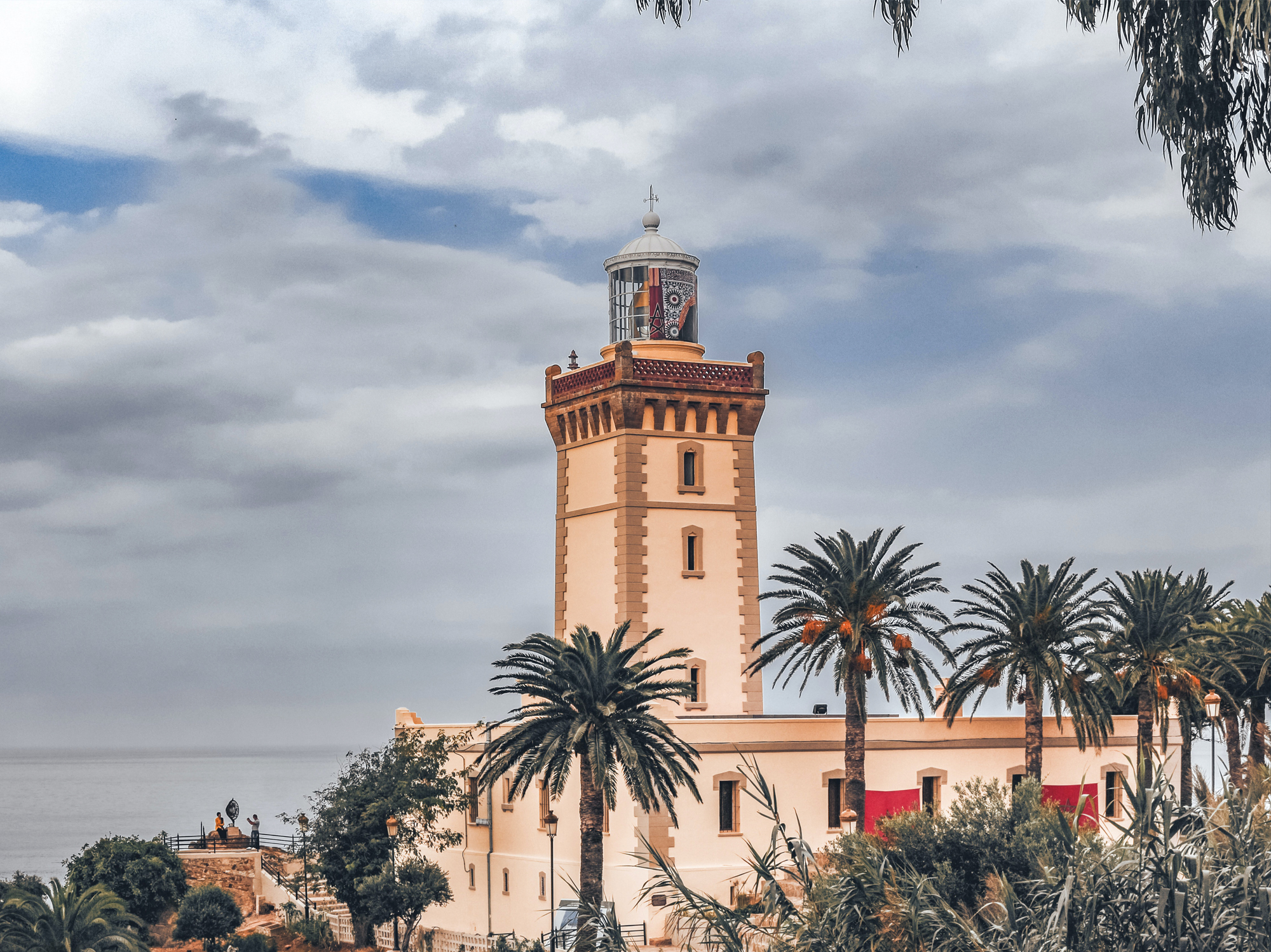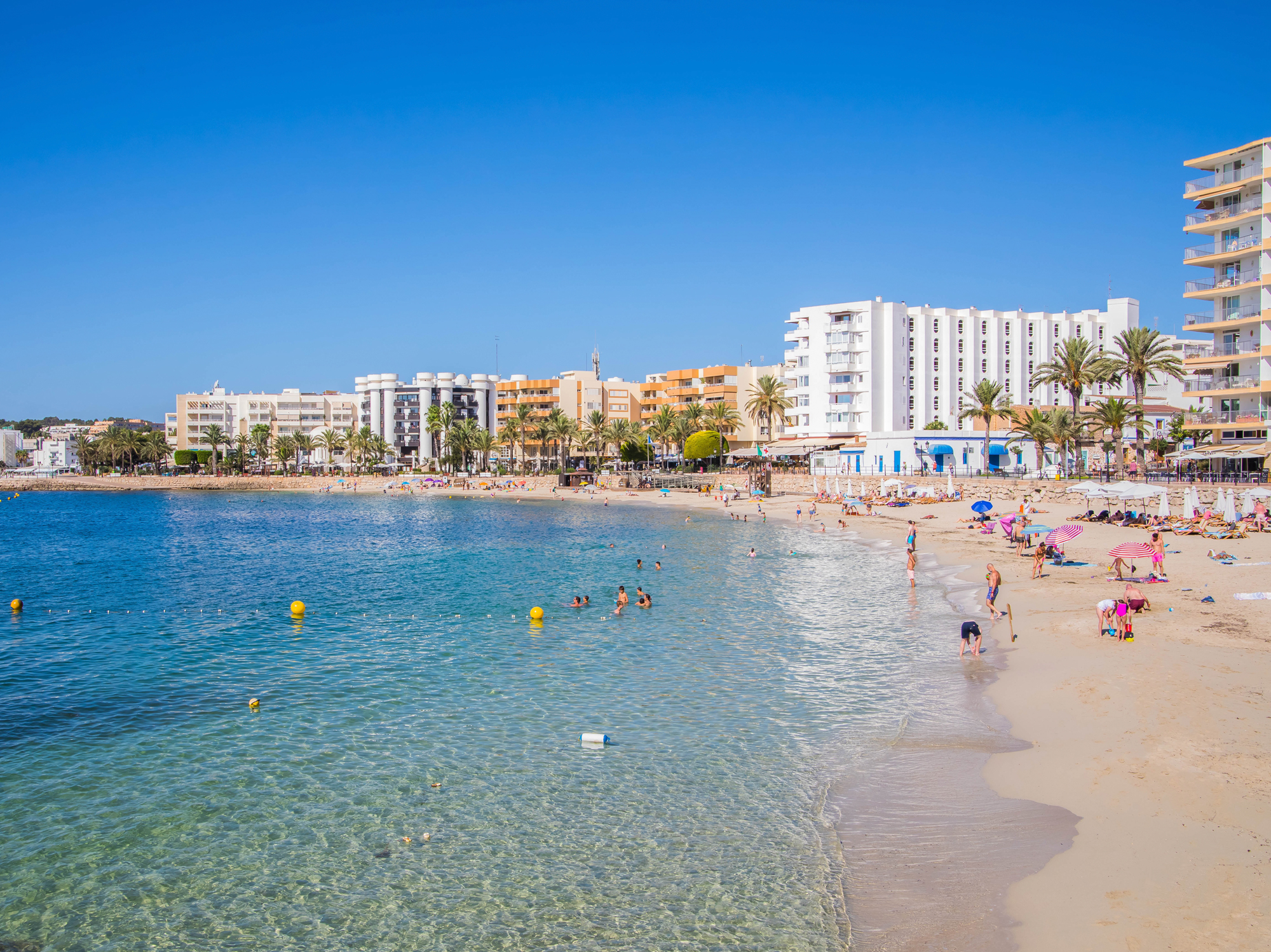
25 September
Inspiring coastal communities to take action for the sustainable development of the Mediterranean
#MedCoastDay #Act4Med #BarcelonaConvention
A call to action for our coastal communities
Mediterranean Coast Day is an annual celebration of our shared coast and a reminder of our collective responsibility to protect it. Bringing together institutions, experts, communities, and citizens, Coast Day inspires solutions, raises awareness, and promotes lasting action for coastal resilience year-round.
The date marks Slovenia’s ratification of the ICZM Protocol in 2009 – a groundbreaking agreement that united 21 Mediterranean countries to advance sustainable coastal development across the region.
Coast Day is part of the UNEP/MAP Barcelona Convention system and is coordinated by PAP/RAC, the regional activity centre for coastal management.
2025 Action theme
Mediterranean institutions for coastal resilience
Behind every thriving coastline are the people and institutions working tirelessly to protect it.
This year, Coast Day shines a spotlight on the institutions that drive meaningful change across the Mediterranean. From designing policies and implementing protection measures to advancing research and spreading knowledge, these organizations play a vital role in building a sustainable coastal future.
The 2025 edition recognizes and celebrates their efforts – and invites everyone to get involved in supporting the people and processes shaping our coastal communities.
Institutions in action: Strengthening coastal resilience
Inspiring impact
Editorial by Daria Povh-Škugor (PAP/RAC Director)
The 2025 edition of Coast Day is all about the institutions inspiring impact around our shores. They protect the coastal and marine environment, make the plans, design the regulations, take the decisions, and spread the knowledge and tools. The goal is to build a better, more sustainable future for our coastal regions.
As we gear up for the day itself on 25 September, we’re putting the spotlight on the incredible work they do – from implementing hands-on projects that protect and restore coastal ecosystems, to driving innovative policy changes that benefit coastal communities. We’ll be celebrating their successes and exploring practical ways everyone who cares about the coast can support and amplify their efforts.
The issue of coastal resilience has never been more critical in our region.
The planet is facing the urgent and interlinked crises of climate change, biodiversity loss and pollution, and the Mediterranean is a global hotspot for all three. Nowhere are they felt more acutely than in the coastal zone.
Some stark projections from a recent report by the UNEP/MAP’s Plan Bleu show how serious the situation is. Temperature rise in the Mediterranean is expected to exceed 2°C by 2040, showing a region warming far faster than the global average. What was predicted for the end of the century is now expected to occur here by 2050. It will bring a radically changed marine environment along with more frequent droughts, floods and heatwaves. A sea level rise of 40cm will make coastal protection in many areas hugely challenging.
Read more
Meanwhile the region’s coastal population – already 150 million people – will continue to rise, growing another 20-30% by the middle of the century. Along with 400 million tourists who visit the Mediterranean (source: WTO) each year, this will put enormous pressure on finite and fragile natural resources. The way in which we approach the management of these resources will define our future societies. The need for coastal resilience is not just environmental, it’s social, economic and deeply human too. It’s everybody’s business.
The crucial role of institutions in making things happen
Our governments are aware of this and, by ratifying the Barcelona Convention, have made a legal commitment to work together for the sustainable development of the Mediterranean coast – and they’ve put in place specialist institutions whose role is to help make this happen.
UN Sustainable Development Goal 16 calls for ‘effective, accountable and inclusive institutions at all levels’. Coast Day 2025 promotes this idea, bringing institutional strength to bear on the central regional issue of sustainable coastal development.
PAP/RAC – the UNEP/MAP regional centre for coastal management – is at the heart of these efforts, promoting the use of powerful approaches like integrated coastal zone management (ICZM) and maritime spatial planning (MSP). These methodologies bring land and sea, science and policy, nature and people together into one big picture to deal with as a whole.
The goal is to build firm, fair foundations for a more resilient future for our coasts. And here – from local and national authorities in charge of environmental protection to development agencies, from scientific bodies to non-governmental organizations – it’s our institutions that are plotting the course and leading the way.
Institutions are made of people, and they exist to serve people
Crucially though, institutions are not abstract. They’re made of people, and they exist to serve people. We all have a role to play in supporting them, and in holding them to account too. Coastal resilience is stronger when communities and institutions work hand in hand in mutual trust and cooperation.
Ordinary citizens, scientists, businesses, educators and young people must all be part of the equation.
Coast Day 2025 will put the spotlight on the impact inspired by specialised institutions.
We’ll be exploring how small groups make a huge difference to millions. We’ll also be looking at how everyone else can get involved too, supporting the people and the processes that are shaping our shared coastal futures. We’ll be convening conversations, swapping stories, celebrating successes, assessing past achievements and scoping out future challenges.
If you care about our coast – today, tomorrow and far into the future – then we invite you to be a part of Coast Day 2025.
- Host your own Coast Day event – register here
- Follow PAP/RAC for the latest updates on social media
Stories in focus
Discover how these institutions are working to protect the Mediterranean coast
UNEP/MAP

Established in 1975, UNEP/MAP is celebrating 50 years and honoring a legacy this year. By bringing together 21 countries and the EU, it has laid the foundation for coordinated environmental action across the Mediterranean
PAP/RAC

For nearly five decades, PAP/RAC has been a driving force behind Mediterranean coastal protection, promoting integrated planning and regional cooperation
Ministry of Natural Resources and Spatial Planning of Slovenia

Slovenia’s 46 km of coastline may be small, but its leadership in integrated coastal zone management is a powerful example for the entire Mediterranean
Run your own #MedCoastDay event!
Do you have a great idea for organizing Coast Day activities in your coastal community?
Share your event with us and put your community on the Coast Day map!
Mediterranean Coast Day 2025 visuals
Download official Coast Day 2025 visuals — logo, poster, banners, and social media graphics — to help promote your event
Explore past editions

